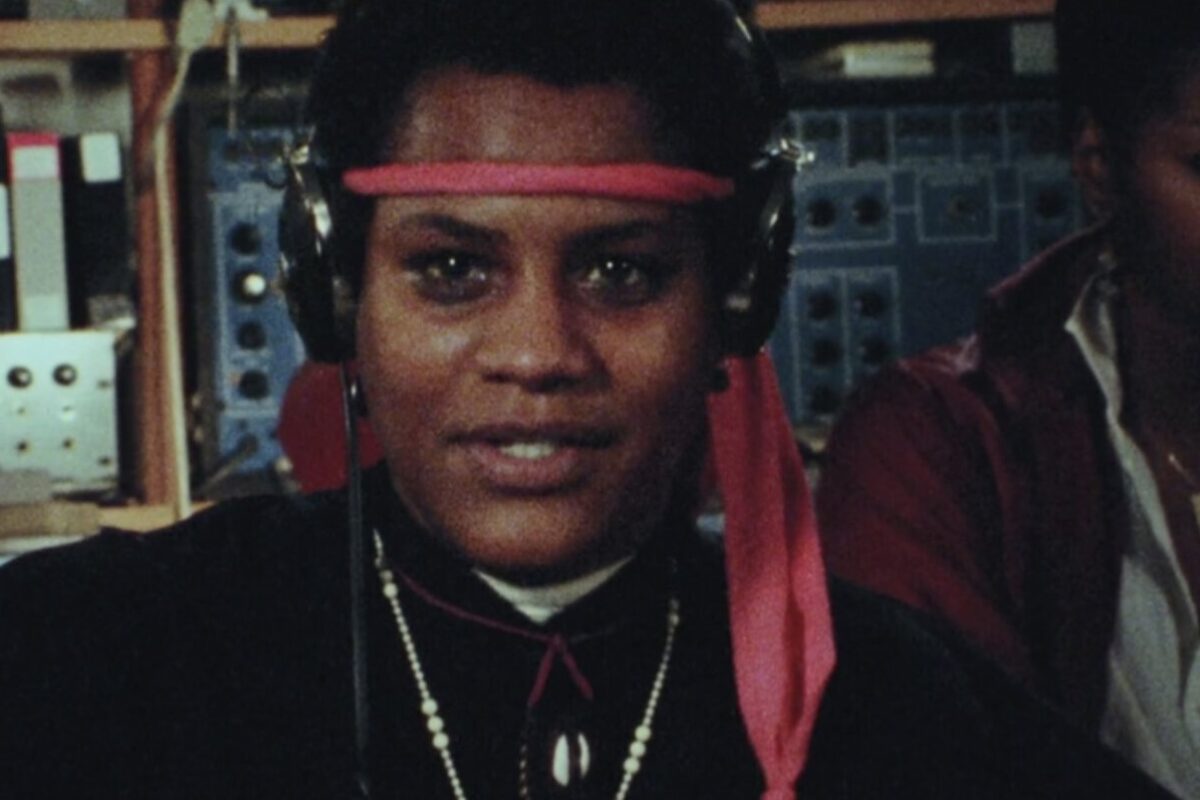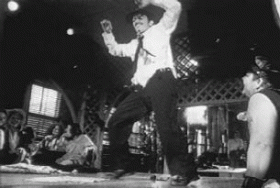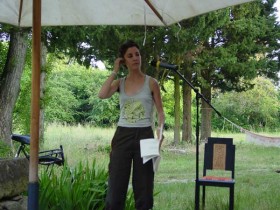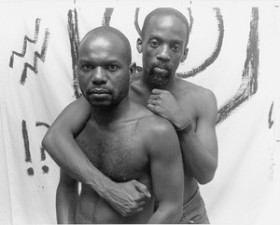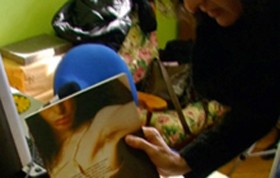Born in Flames is a 1983 documentary-style feminist science fiction film by Lizzie Borden that explores racism, classism, sexism and heterosexism in an alternative United States Socialist Democracy.
The plot concerns two feminist groups in New York City, each voicing their concerns to the public by pirate radio. One group, led by an outspoken white lesbian, Isabel (Adele Bertei), operates “Radio Regazza”. The other group, led by a soft-spoken African-American, Honey (Honey), operates “Phoenix Radio”. The local community is stimulated into action after a world-traveling political activist, Adelaide Norris (Jean Satterfield), is arrested upon arriving at a New York City airport, and suspiciously dies while in police custody. Also, there is a Women’s Army led by Hilary Hurst (Hilary Hurst) and advised by Zella (Flo Kennedy) that initially both Honey and Isabel refuse to join. This group, along with Norris and the radio stations, are under investigation by a callous FBI agent (Ron Vawter). Their progress is tracked by three interns (Becky Johnston, Pat Murphy, Kathryn Bigelow) for a socialist newspaper run by screenwriter Ed Bowes, who go so far they get fired.
The story involves several different women coming from different perspectives and attempts to show several examples of how sexism plays out, and how it can be dealt with through direct action. A famous scene is one during which two men are attacking a woman on the street and dozens of women on bicycles with whistles come to chase the men away and comfort the woman. The women in the movie have different ideas about what can and should be done, but all know that it is up to them, because the government will not take care of it. The movie shows women organizing in meetings, doing radio shows, creating art, wheatpasting, putting a condom on a penis, wrapping raw chicken at a processing plant, etc. The film portrays a world rife with violence against women, high female unemployment, and government oppression. The women in the film start to get together to make a bigger impact, by means that some would call terrorism.
Ultimately, after both radio stations are suspiciously burned down, Honey and Isabel team up and broadcast “Phoenix Regazza Radio” from stolen moving vans. They also join the Women’s Army, which sends a group of terrorists to interrupt a broadcast of the President of the United States proposing that women be paid to do housework, followed by bombing the antenna on top of the World Trade Center to prevent additional such destructive messages from the mainstream.
Craig Willse and Dean Spade, “Introduction: We are Born in Flames” | download pdf
Lucas Hilderbrand, “In the Heat of the Moment: Notes on the Past, Present, and Future of Born in Flames” | download pdf
Christina Hanhardt, “LAUREL and Harvey: Screening Militant Gay Liberalism and Lesbian Feminist Radicalism circa 1980″ | download pdf
Stephen Dillon, “‘It’s here, it’s that time’: Race, Queer Futuriy, and the Temporality of Violence in Born in Flames” | download pdf
Allyson Mitchell, Deirdre Logue, and Scott Miller Berry, “Are You Burning?: Lizzie Borden’s Born in Flames circa 2012″ | download pdf
Eric A. Stanley, Wu Tsang, and Chris Vargas, “Queer Love Economies: Making Trans/Feminist Film in Precarious Times” | download pdf
